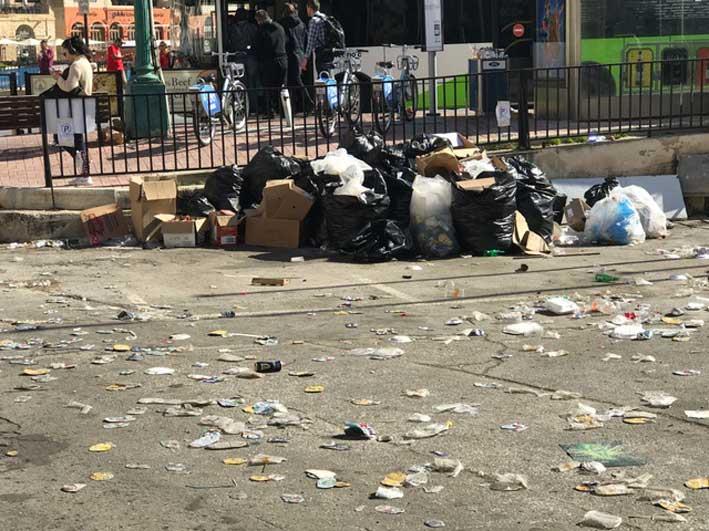The Ministry for the Environment, Sustainable Development and Climate Change has said it will be up to local councils to determine the best way to address particular cases in their communities related to the maximum time allowed to take out rubbish bags.
This is a result of the reaction to the four-hour rule for garbage collection that appeared on social media. Last week Minister Jose Herrera and Parliamentary Secretary for Local Government Silvio Parnis launched a four-week public consultation period for proposed amendments to the anti-littering regulations which, among other things, will see increased fines for littering. One of the proposals is that rubbish bags can only be put out up to four hours prior to collection time.
A number of the comments on social media were from people who either said they worked night shifts and would not be home in time for an early morning rubbish collection or, in the case of some localities with afternoon rubbish collections, that they would be out at work. The new amendments impose a fine of up to €300 if the rubbish bag is taken out before the stipulated four hours.
When asked how these specific situations will be dealt with, the Ministry insisted that the time for collection is at the discretion of the local council. It also said that there are "other ways and means" that were already in place by certain local councils whereby a centralised alternative or addition to kerbside collection existed. These methods are not limited to skips. When asked what the other solutions already in place are, the Ministry did not respond.
It appears that there are also situations when the stipulated collection time by the local council is not adhered to by those collecting rubbish. The Ministry clarified that, in this case, it would take into consideration the official time of collection as identified and determined by the local council and not necessarily when the rubbish collector reaches a particular household.
In conjunction with the four-hour rule, the proposal obliges citizens to take out the right garbage bag on the correct day and not, for example, take out a grey bag on a black bag collection day, in which case a fine would be imposed. The new regulations state that this is important in order to ensure that garbage bags are not left uncollected for a long time.
On this particular issue, the Ministry said that in order for the authorities to take action against an offender, either the latter has to be caught red-handed or there has to be 'sufficient proof' that an irregular act has occurred. This resulted following concerns expressed about who will be penalised in multi-apartment buildings and people placing rubbish outside someone else's premises.

The littering regulations do not, however, state what is considered sufficient proof as this is not in the remit of the amendments. The amendments identify an offence and its related penalties, said the Ministry.
The competent authorities that can impose penalties are local wardens, the police and enforcement officers from the Environment and Resources Authority (ERA) which already have the necessary powers to issue contraventions in this regard, the Ministry confirmed. It will, however, be necessary for each enforcement officer to know the collection times of each locality to ensure the four-hour rule is adhered to.
During the launch, Herrera said that the introduction of these measures is the first step before forced waste separation at source is introduced.
When questioned how the new regulations will be administrated, the Ministry said that the deployment of officials from the aforementioned competent authorities will ensure that the provisions contained in the littering regulations are enforced. It also said that the considerable increase in fines will also ensure that abuse is curtailed. Offences can also be reported to the competent authorities who will, in turn, evaluate and proceed according to the provisions of the law.
Amongst the complaints on social media, several referred to other people placing rubbish in front of their residences. Although being noted as "highly unethical and imprudent in today's society" by the Ministry, the amendments do not say explicitly that rubbish cannot be put in front of someone else's door.
Apart from these measures, the amendments also include obligations for hawkers and street sellers to have separate bins for waste collection and for the extension of aggravating circumstances for illegal dumping on Nature 2000 sites, or special areas of conservation. It also includes more empowerment to the courts and the introduction of a simplified measure for the payment of fines.